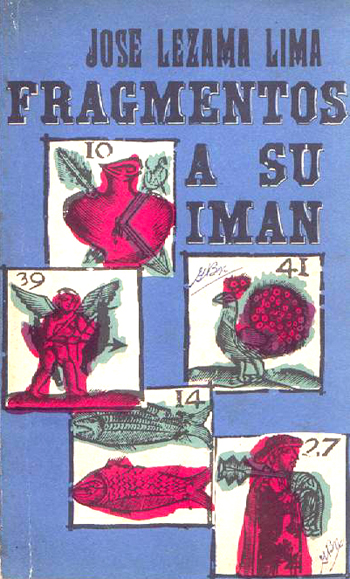4.1.2.2.7 Fragments to his magnet, 1977, by José Lezama Lima (1910 – 1976)

“Fragments to their Magnet” has sometimes been considered as evidence of the disintegration of the poetic system that José Lezama Lima had championed since the Origenist era, since this book is significantly inarticulate in relation to his previous works, precisely structured as small imaginary cosmoses that come to participate strongly in reality.
This text combines many of the motifs he developed in parallel in his novels, which have a similar poetic root; the title itself demonstrates a semantic unity that wasn’t realized initially but later, as the poetic bodies differ in terms of topic and also date from different periods, somewhat as if left behind in a haphazard way, but nonetheless not alien to his central ideas, although not systemic.
Some features of the collection have suggested a surrealist phase in Lezam’s poetic output; however, the poet never subscribed to this movement—although he incorporated the essence of its contributions—and while many of the texts reveal a certain cathartic freedom, one also appreciates the gift of a writing that returns to itself to increasingly approach the core of a concentrated, undeliberate lyricism.
Although its poetic system is not broken, there is a rupture that many attribute to an alleged censorship from implicitness, in a sense not purely poetic but rather compositional, as regards the structuring of the small cosmos of the poem collection and the concords and discords that are manifested throughout the verse fabric, while visually it becomes uneven and arbitrary, although the texts retain the quality of yesteryear.
As in his previous collections of poems, the metapoetic is a sense that appears with the same display of images that return to themselves, while the natural wonder and the hermetic nature of a lexicon whose spheres of meaning were sometimes attributed by the poet, contribute to a multiple fabric, a plurality based on poetic riches of diverse signs, even fertilized by other languages.








